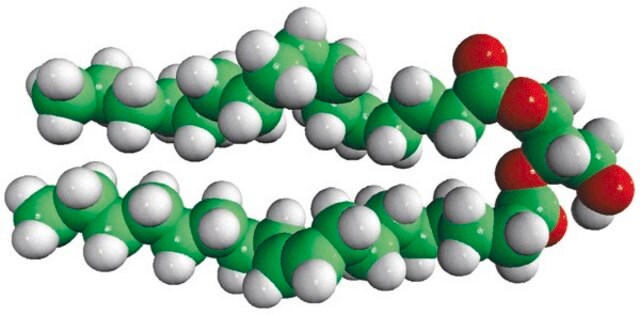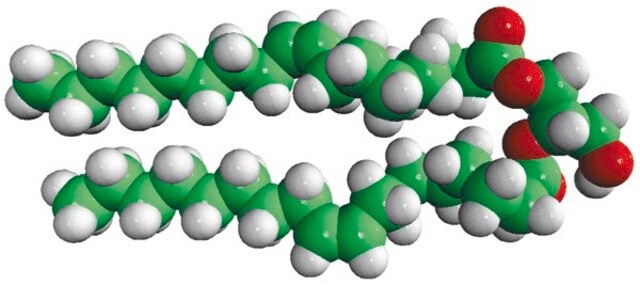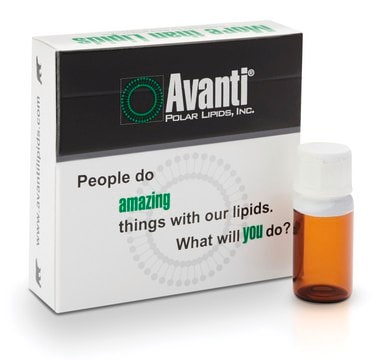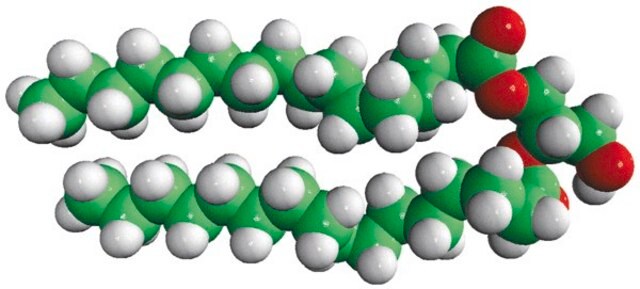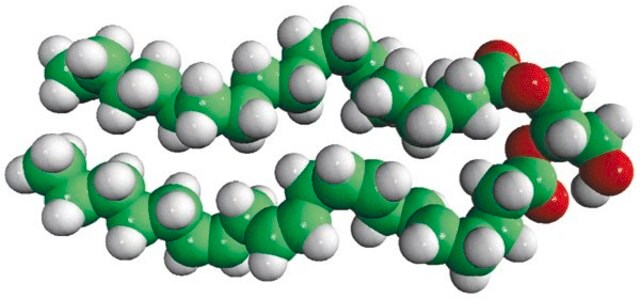800815C
Avanti
16:0-18:1 DG
1-palmitoyl-2-oleoyl-sn-glycerol, chloroform
Synonyme(s) :
1-hexadecanoyl-2-(9Z-octadecenoyl)-sn-glycerol; DG(16:0/18:1(9Z)/0:0)
About This Item
Produits recommandés
Essai
>99% (TLC)
Forme
liquid
Conditionnement
pkg of 1 × 5 mL (800815C-10mg)
pkg of 1 × 5 mL (800815C-25mg)
pkg of 1 × 8 mL (800815C-200mg)
Fabricant/nom de marque
Avanti Research™ - A Croda Brand 800815C
Concentration
2 mg/mL (800815C-10mg)
25 mg/mL (800815C-200mg)
5 mg/mL (800815C-25mg)
Type de lipide
neutral glycerides
neutral lipids
Conditions d'expédition
dry ice
Température de stockage
−20°C
Description générale
Diacylglycerol mimicks the effects of the tumor-promoting compounds phorbol esters.
Application
Conditionnement
Stockage et stabilité
Autres remarques
Dry samples of diacylglycerol in chloroform, using a stream of nitrogen. Dissolve the residue in an appropriate volume of ethanol or DMSO, then dilute to the desired aqueous medium.
Most biological responses saturate at 20 to 250 μM sn-1,2-dioctanoylglycerol. Only sn-1,2 isomers appear to be active.
Informations légales
Mention d'avertissement
Danger
Mentions de danger
Classification des risques
Acute Tox. 3 Inhalation - Acute Tox. 4 Oral - Aquatic Chronic 3 - Carc. 2 - Eye Irrit. 2 - Repr. 2 - Skin Irrit. 2 - STOT RE 1 - STOT SE 3
Organes cibles
Central nervous system, Liver,Kidney
Classe de danger pour l'eau (WGK)
WGK 3
Faites votre choix parmi les versions les plus récentes :
Certificats d'analyse (COA)
It looks like we've run into a problem, but you can still download Certificates of Analysis from our Documents section.
Si vous avez besoin d'assistance, veuillez contacter Service Clients
Déjà en possession de ce produit ?
Retrouvez la documentation relative aux produits que vous avez récemment achetés dans la Bibliothèque de documents.
Notre équipe de scientifiques dispose d'une expérience dans tous les secteurs de la recherche, notamment en sciences de la vie, science des matériaux, synthèse chimique, chromatographie, analyse et dans de nombreux autres domaines..
Contacter notre Service technique